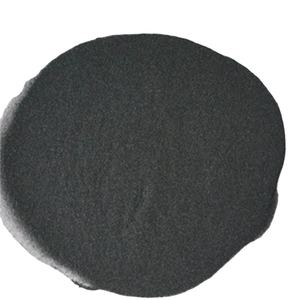Standard qualities of B4C
Boron carbide (B4C) is an inorganic compound with a strong framework, primarily made up of boron and carbon components. Its superb residential or commercial properties in numerous applications make it an important functional product. The density of B4C is about 2.52 g/cm ³, which is lighter than other common protecting materials. Furthermore, the melting point of B4C is as high as 2450 ° C, enabling it to maintain excellent structure and performance in heat atmospheres.
B4C has an extremely high neutron absorption cross-section, and its shielding result on fast neutrons is especially substantial. Neutrons are usually not bound by traditional materials such as lead or light weight aluminum, and B4C can effectively soak up neutrons and transform them right into gamma rays, thereby decreasing the unsafe effects of radiation. For that reason, B4C ends up being a suitable selection for manufacturing neutron securing materials.
(TRUNNANO Boron Carbide Powder)
The role of polyethylene
Polyethylene (PE) is a common thermoplastic that is commonly made use of in numerous fields due to its excellent optical, chemical and electrical insulation residential or commercial properties. In nuclear radiation security, incorporating B4C with polyethylene can not only boost the strength and put on resistance of the product, but additionally lower the general weight of the material, making it less complicated to set up and apply.
When polyethylene shields neutrons, it reduces them down by colliding with them. Although the neutron absorption capability of polyethylene is much less than that of B4C, its deceleration and buffering homes can be totally made use of in the design of composite materials to improve the total shielding result.
Prep work procedure of B4C polyethylene board
The process of producing B4C polyethylene composite panels includes numerous steps. First, high-purity B4C powder have to be prepared through high-temperature solid-phase synthesis. Then, the B4C powder is combined with polyethylene resin in a certain percentage. During the blending process, B4C bits are evenly dispersed in the polyethylene matrix by utilizing mechanical mixing and hot pressing.
After molding, annealing is executed. This process assists release inner stress and anxiety and enhance the total efficiency of the product. Lastly, the completed B4C polyethylene panels are cut into the required specifications to help with succeeding construction and usage.
(TRUNNANO Boron Carbide Powder)
Distributor of Boron Carbide Powder
TRUNNANO is a supplier of 3D Printing Materials with over 12 years experience in nano-building energy conservation and nanotechnology development. It accepts payment via Credit Card, T/T, West Union and Paypal. Trunnano will ship the goods to customers overseas through FedEx, DHL, by air, or by sea. If you want to know more about boron carbide tiles, please feel free to contact us and send an inquiry.
Inquiry us


